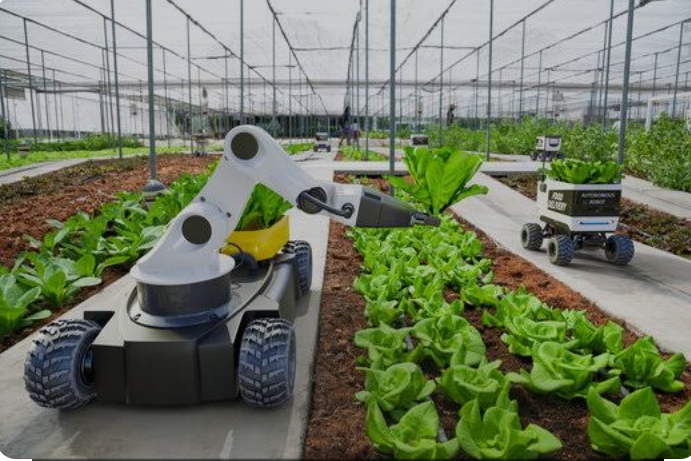
Jalandhar (R24N): Introduction, Agriculture has undergone remarkable transformations over the past few decades, driven by technological advancements aimed at improving productivity, efficiency, and sustainability. This review explores various technologies that have revolutionized agriculture, focusing on their impact, benefits, challenges, and future potential.
1. Precision Agriculture
Precision agriculture (PA) integrates technology such as GPS, sensors, drones, and GIS to optimize field-level management. It enables farmers to apply inputs like water, fertilizers, and pesticides precisely where and when they are needed, reducing waste and enhancing crop yields. PA also facilitates data-driven decision-making through remote sensing and analytics, offering insights into soil health, crop growth, and pest management.
2. Automated Machinery
Modern agriculture increasingly relies on automated machinery and robotics to streamline labor-intensive tasks. Tractors equipped with GPS-guided systems can perform precise seeding, spraying, and harvesting operations. Robots are also being developed for tasks like weeding, fruit picking, and sorting, reducing dependency on manual labor and improving efficiency.
3. Controlled Environment Agriculture (CEA)
CEA involves growing crops within controlled environments such as greenhouses, vertical farms, and hydroponic systems. These environments allow for year-round production, protection from adverse weather conditions, and optimized resource use (water, nutrients, energy). LED lighting, climate control systems, and advanced sensors monitor and regulate conditions to maximize crop growth and quality.
4. Biotechnology and Genetic Engineering
Advancements in biotechnology have led to the development of genetically modified organisms (GMOs) with traits such as pest resistance, drought tolerance, and enhanced nutritional content. GMOs enable farmers to achieve higher yields with reduced inputs, contributing to food security and environmental sustainability. However, concerns about GMO safety and regulation remain contentious issues.
5. Big Data and Analytics
The agriculture sector is increasingly leveraging big data analytics to enhance decision-making processes. By collecting and analyzing data from sensors, satellites, and farm equipment, farmers can optimize planting schedules, predict crop diseases, and manage resources efficiently. Machine learning algorithms are employed to derive actionable insights and improve agricultural practices continuously.
6. Internet of Things (IoT)
IoT devices such as soil moisture sensors, weather stations, and livestock trackers are revolutionizing farm management by providing real-time data on environmental conditions and animal health. IoT networks enable farmers to monitor and control operations remotely, optimize resource use, and respond promptly to potential issues.
7. Sustainable Practices
Technological innovations are crucial for promoting sustainable agriculture practices. Conservation tillage, cover cropping, and integrated pest management (IPM) strategies are supported by digital tools and precision techniques to minimize environmental impact while maintaining profitability. Sustainable agriculture aims to preserve natural resources, biodiversity, and soil health for future generations.
Challenges and Future Directions
Despite the numerous benefits, the adoption of advanced agricultural technologies faces challenges such as high initial costs, lack of infrastructure in rural areas, and concerns over data privacy and cybersecurity. Moreover, the digital divide limits access to technology for small-scale farmers in developing countries.
Looking ahead, the future of agriculture lies in integrating these technologies seamlessly while addressing regulatory, ethical, and environmental considerations. Innovations in AI, blockchain, and biotechnology hold promise for further enhancing productivity, resilience, and sustainability across diverse farming systems worldwide.
Conclusion
Technological advancements have transformed agriculture into a data-driven, precise, and sustainable industry. From precision agriculture and automated machinery to biotechnology and IoT, these innovations empower farmers to produce more with fewer resources while minimizing environmental impact. Embracing these technologies and addressing associated challenges will be pivotal in shaping the future of global food security and agricultural sustainability.
This review underscores the pivotal role of technology in modern agriculture and highlights the ongoing evolution towards smarter, more efficient, and sustainable farming practices.
–Presented by : Raghav Malhotra
–Certified by Principal of Swami Sant Dass Public School : Mrs. Sonia Mago
-Subject teacher : Mrs. Raakhee Gaba


























